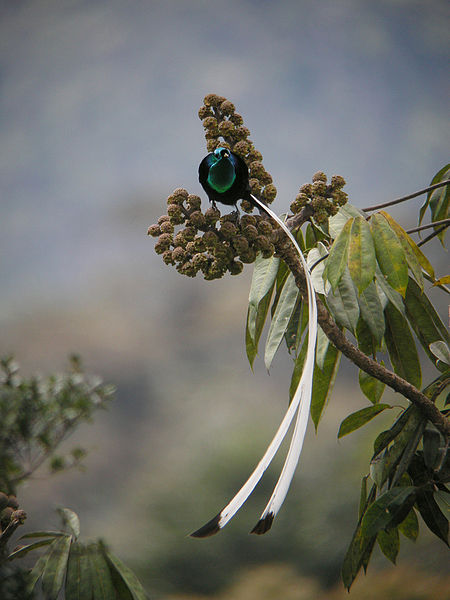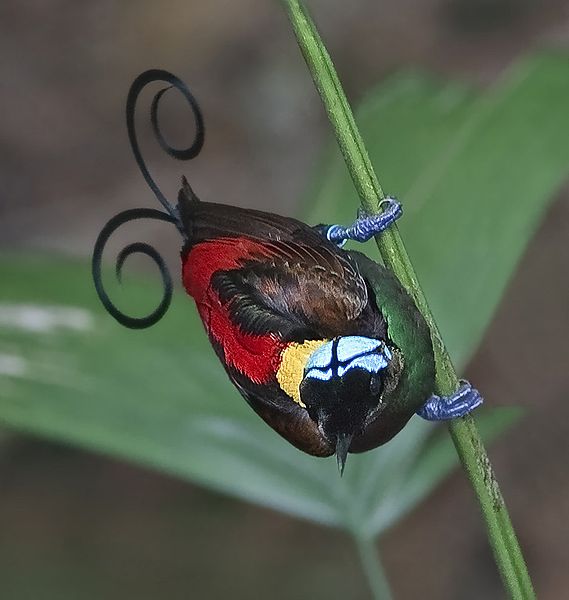
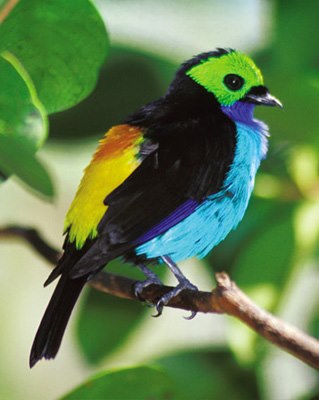
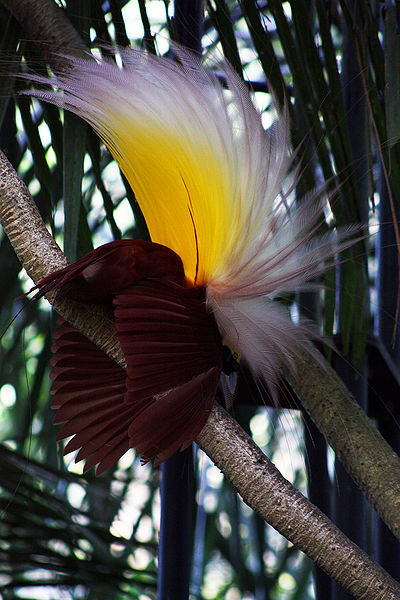
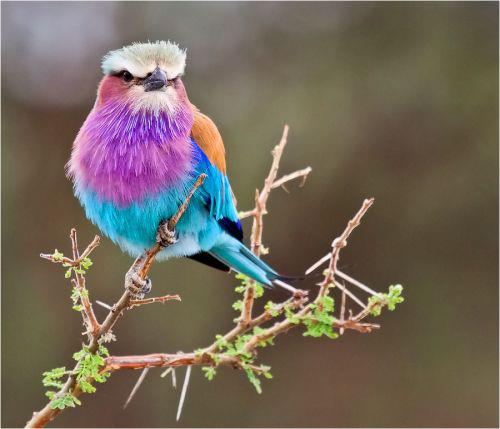
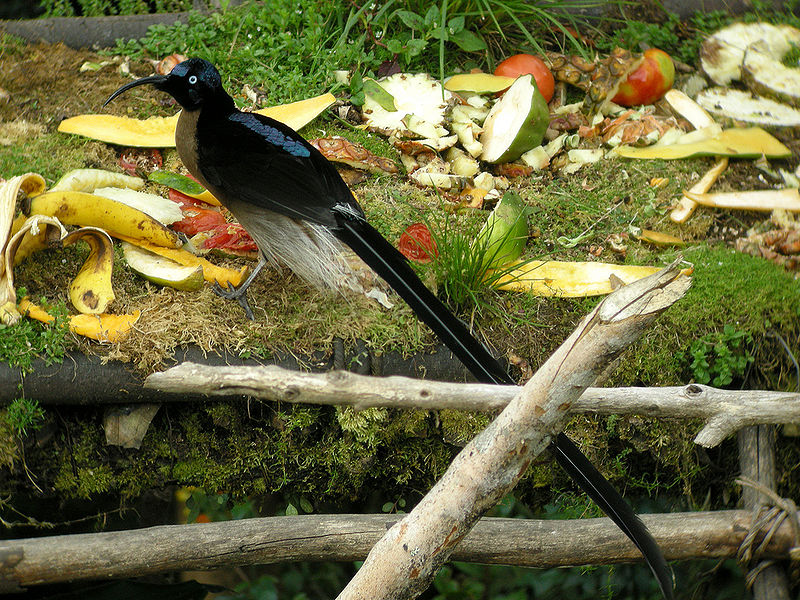
BIRDS OF PARADISE.
AS flowers among the vegetable kingdom are seemingly sent to beautify the world, so birds have their place among living animals, and seem created for the display of beauty. Indeed, they rival the flowers in variety and brilliancy of color, especially our tropical birds. Then, too, the grace of their movements and their sweet songs give an added and indescribable charm.
Among the most brilliant members of the feathered tribes, are those called Birds of Paradise. The natives of the Molucca Islands give them the name of "God's Birds," as being superior to all he has made. "Not even the humming-birds themselves, "says one," present such an inexhaustible treasury of form and color as is found among the comparatively few species of the Birds of Paradise. In all, the feathers glow with resplendent radiance, in nearly all there is some strange and altogether unique arrangement of the plumage, and in many the feathers are modified into plumes, ribbons, and streamers that produce the most surprisingly lovely effects."
The Great Emerald Paradise Bird, is described as a most elegant bird.
"From the tip of the bill to the end of the long side feathers is about two feet, but to the end of the real tail about twelve inches; the size of the bird being that of the thrush. The bill is slightly bent, and of a greenish color; the base surrounded, for the distance of half an inch, with close set, velvet-like black plumes, with a varying luster of golden green. The head, together with the back part of the neck, is a pale gold color, the throat and fore part of the neck, of the richest changeable gold-green. The whole remainder of the plumage, on the body and the tail is of a fine deep chestnut, except on the breast, which is, a deep purplish color.
"From the upper part of each side of the body, beneath the wings, springs an abundance of long, loose, broad floating plumes of the most delicate texture and appearance, in some specimens of a bright, deep yellow, in others of a paler hue, but most of these marked by a few longitudinal dark red spots. And from the middle of the rump spring a pair of naked shafts, considerably exceeding in length even the long loose plumes of the side.
"This bird is a native of the Molucca Islands, and the islands around New Guinea, particularly in the Aroo. Latham mentions that a specimen was once brought alive to England; and it is occasionally brought to Macao in China."
There is one species called King Bird of Paradise. It is thought to be the smallest of all these birds, about the size of a lark. It is almost impossible to give an adequate idea of the brilliancy of its velvet-like plumage of blood-red, green, white, gold, chestnut brown, etc., which is exquisitely arranged upon head, breast, and wings, presenting a fine gloss like rich satin. The tail of this bird is remarkably short, and from it springs two naked feathers, which coil in a spiral manner at the end. The legs are moderately stout and of a yellowish brown color. This species, called the King Bird of the Dutch, is said not to associate with other birds of the genus, but to be of a solitary nature, feeding on berries, particularly those of a red color; seldom if ever sitting on lofty trees, but frequently on shrubs and bushes.
There is also the Golden-breasted Bird of Paradise, and the Super Bird of Paradise, each having a different form and adjustment of the brilliant feathers; and a few of less note.
Many strange tales were told of the Bird of Paradise by ancient writers.
It was thought to have no legs or feet, but to pass its time floating in the air, only occasionally taking a little rest by suspending itself from the branches of a tree by the long feathers of its tail, an absurd idea which probably originated from the fact that the places from which they were received the Malay Archipelago were then little known, and as all the specimens of the bird which reached Europe were legless, they imagined this its natural condition. The way in which the natives preserved the birds was to cut off the legs, run into the body a hot iron, which dried up the internal moisture; and then, filling the cavity with salt and spices, they sold them to the Europeans for a mere trifle.
Most of these birds associate in large flocks in the delightful aromatic woods and groves of their native islands. And the inhabitants themselves are not insensible to their charms, for, as we have already said, they give them the name of "God's Bird." From the rapidity of their flight, as well as their being continually on the wing in pursuit of insects, their usual prey, they are sometimes called the Swallows of Ternate.
The country where they breed is visited with tempestuous seasons, but these birds are seldom seen at such times; and it is supposed that they then emigrate to countries where their food is to be found in great abundance: for, like swallows, they have their “appointed times."
New York Observer.
